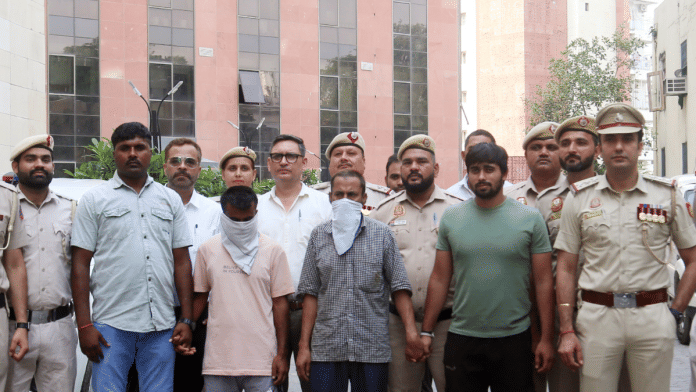New Delhi: Bangladesh will issue a fresh diplomatic note to India in response to the “continued push-in” of people across the border, country’s Foreign Affairs Adviser Md Touhid Hossain said Tuesday, amid a rise in deportations of undocumented Bangladeshi nationals from India as it looks to bolster its internal security.
Speaking to reporters at the office of the Ministry of Foreign Affairs, Hossain confirmed the note would be “substantive” and sent “today or tomorrow”.
“We see it (deportation) is happening. It is not feasible to resist physically,” he said, stressing the need for diplomatic and legal processes to be followed in resolving consular issues.
When asked whether the language of the letter would be conciliatory or resemble a protest note, he replied, “That depends on how it is viewed.”
The diplomatic communication is expected to seek clarity on New Delhi’s repatriation procedures, request prior notification for deportations, and propose the activation of formal bilateral frameworks to manage such movements more systematically.
According to a Daily Star report citing the Border Guard Bangladesh (BGB) headquarters, at least 1,053 individuals have been deported to Bangladesh from India through various border points.
India has intensified its effort to deport illegal immigrants and dismantle suspected sleeper cells after the April 22 terror attack in Pahalgam in which Pakistan-backed terrorists killed 26 tourists.
According to reports based on sources in New Delhi, more than 2,000 Bangladeshi nationals have been deported over the past month. Many more are reported to have voluntarily left the country, fearing arrest or legal consequences. The deportations have largely been concentrated in border states like Tripura, Meghalaya and Assam. Some have been deported from the national capital as well.
Hossain said Bangladesh is examining each case individually, and only accepting returnees after verification of their nationality. He noted that India has provided a list of individuals it claims are Bangladeshi citizens. “There is a mechanism on consular issues, and using the mechanism, Dhaka is trying to bring it under the set rules,” he said.
Earlier, Bangladesh sent a note 8 May, the first time it lodged a diplomatic protest over this issue.
While New Delhi continues to defend the legality of its actions, Dhaka has expressed concerns about what it terms lack of prior consultation. Hossain reiterated that structured dialogue and adherence to established consular norms are essential to prevent further diplomatic strain.
Separately, Hossain Tuesday dismissed speculation about any developments concerning the deportation of former prime minister Sheikh Hasina, who was ousted and now faces charges at the International Crimes Tribunal for alleged crimes against humanity during the July mass uprising against her government. “There has been no development,” Hossain said in response to a media query.
In its 8 May note, Dhaka expressed alarm over the “forced entry” of around 300 individuals, including Rohingyas, into Bangladeshi territory between 7 and 9 May through remote border points in Khagrachhari, Moulvibazar, Kurigram and the Sundarbans.
The foreign ministry said that such “unilateral actions” breach multiple agreements, including the 2011 Coordinated Border Management Plan. Bangladesh said it will only accept those conclusively identified as its citizens through legal procedures.
(Edited by Ajeet Tiwari)






